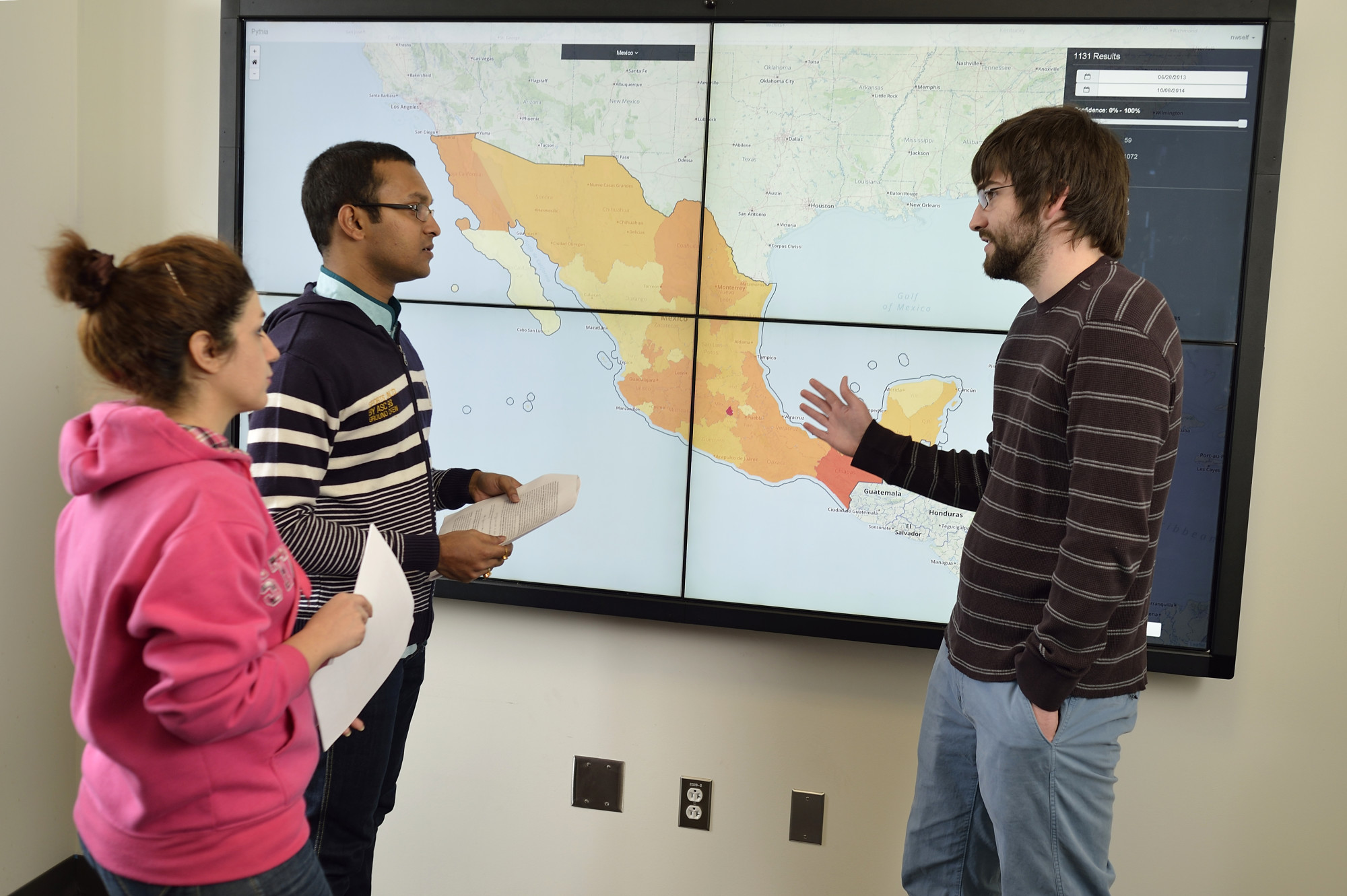About The Sanghani Center
The Sanghani Center for Artificial Intelligence and Data Analytics at Virginia Tech is at the forefront of scientific innovation, leading Tech’s efforts in “big data” research and education on campus. We offer deeply technical undergraduate and graduate programs in analytics and our faculty conduct leading-edge research in visual and text-based data analytics, machine learning, and artificial intelligence.
The Sanghani Center exists to conduct transdisciplinary research that helps solve our nation’s most pressing challenges – from national security to sustainability to public health – and drive the technology innovations that will benefit everyone. By using research to push the boundaries of what is possible in artificial intelligence and data analytics, the Sanghani Center inspires innovation and educates today’s workforce in tomorrow’s data-driven world using the methods of data science and artificial intelligence. We study not just the algorithmic aspects of converting data to knowledge and of automated decision-making, but also human-AI collaboration and teaming, and the ethical and social aspects of AI.
The Sanghani Center, formerly known as the Discovery Analytics Center, was established in 2011. From just four faculty a decade ago, our center has organically grown to include 20 faculty and over 120 graduate students. While headquartered in the greater Washington, D.C., metro area, our center also has faculty and students based at Virginia Tech’s Blacksburg campus, and is part of the Department of Computer Science in Virginia Tech’s College of Engineering.
Technical Areas: Key technical areas for the Sanghani center include:
- Network Analysis
- Explainable AI
- Natural language processing
- Adversarial AI
- Forecasting
- Visual analytics
- Human-AIcollaboration
- Ethical and Societal Implications of AI and Automation
Application Areas: Key application areas for the Sanghani center will include:
- Epidemiology and Public Health
- National Security
- Sustainability
- Edge Computing and IoT
- Urban Systems
